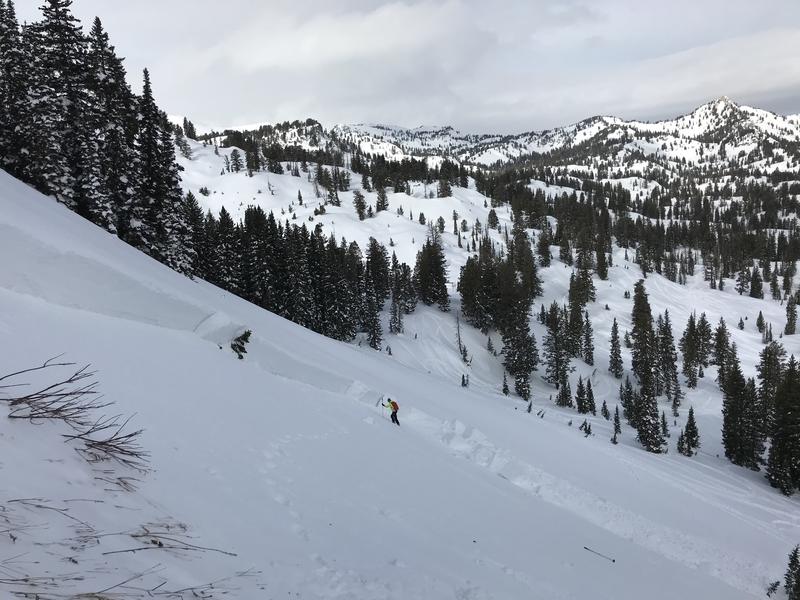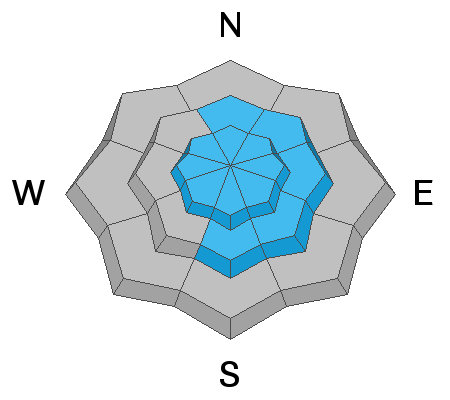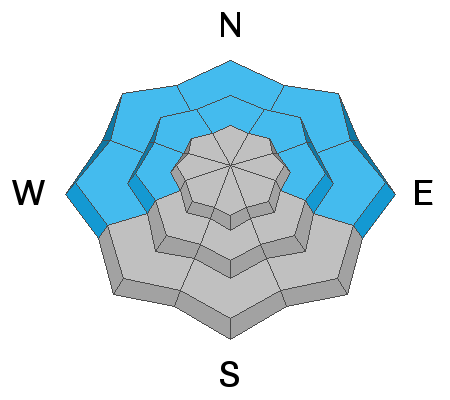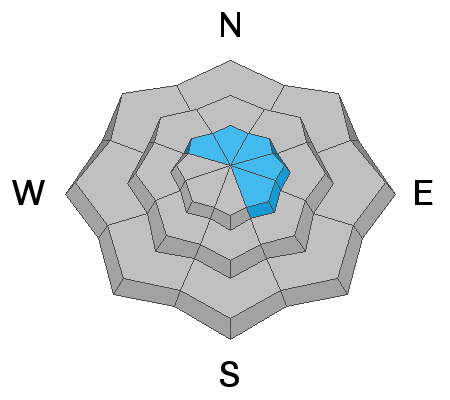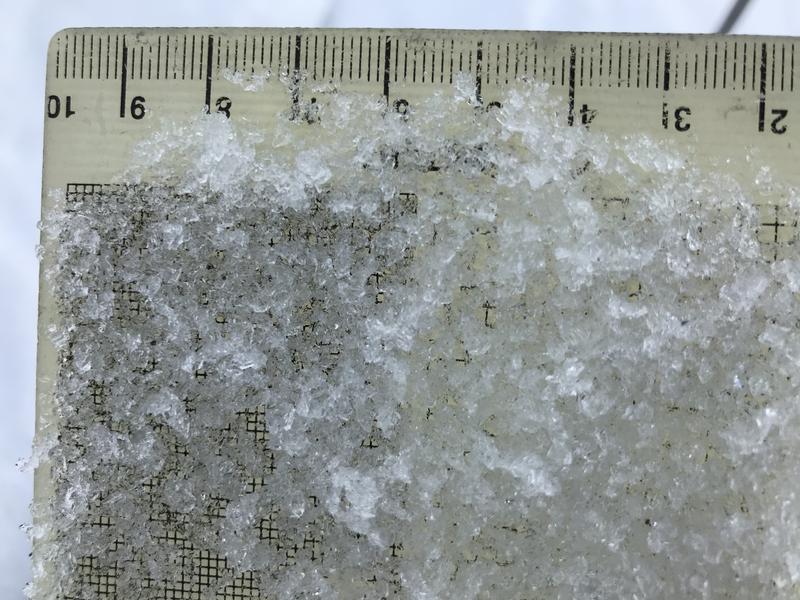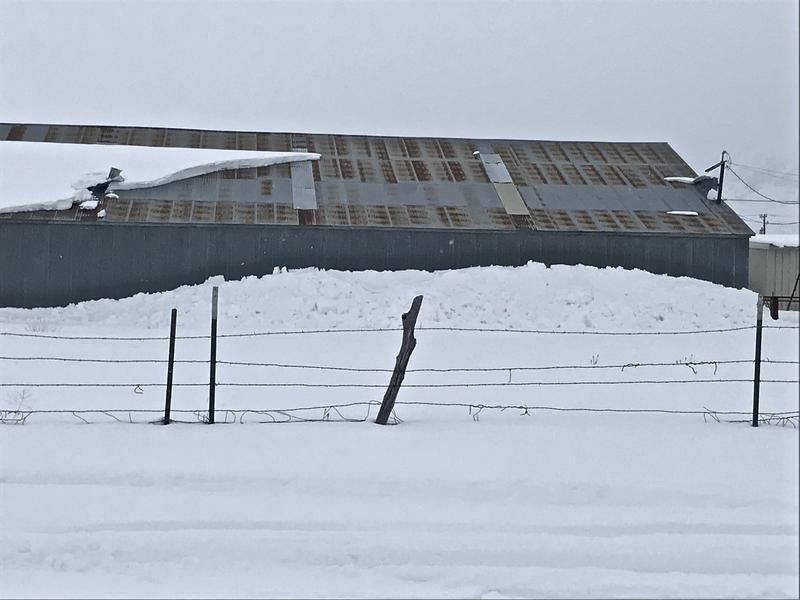Forecast for the Logan Area Mountains

Issued by Toby Weed on
Monday morning, January 27, 2020
Monday morning, January 27, 2020
Several inches of heavy new snow and drifting from westerly winds overnight created heightened avalanche conditions. MODERATE danger exists and people could trigger avalanches of fresh wind drifted snow on steep upper and mid elevation slopes. A bit of rain fell on the snow at lower elevations and wet avalanches are possible on steep slopes with saturated snow. Although increasingly unlikely, dangerous human triggered avalanches failing on a deeply buried persistent weak layer remain possible on isolated upper elevation slopes facing northwest, north, east, and southeast.
- Evaluate snow and terrain carefully.

Low
Moderate
Considerable
High
Extreme
Learn how to read the forecast here


